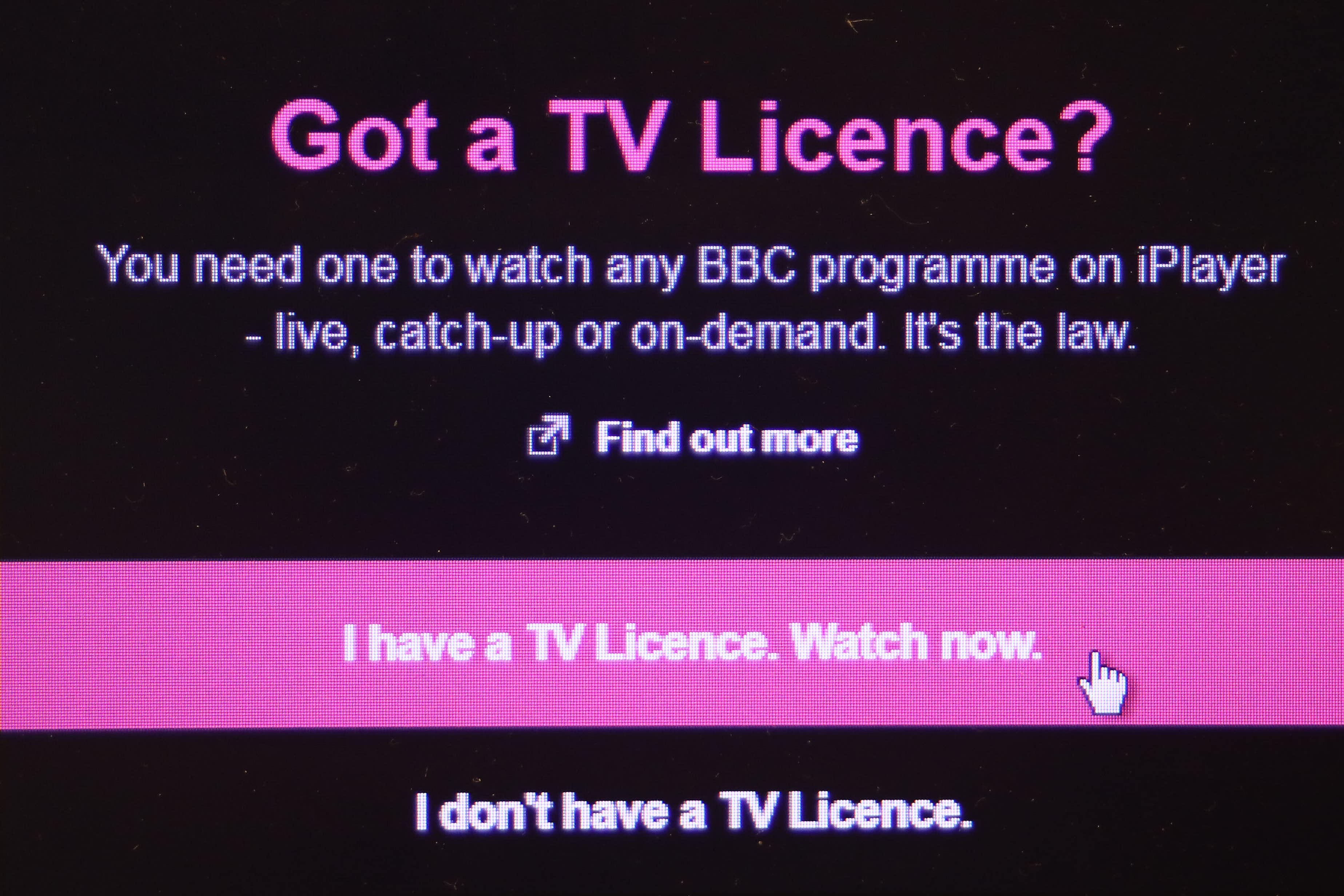What is the BBC licence fee and how could it change?
The licence fee had been frozen at £159 over the last two years and the Government has announced it will now rise by £10.50 to £169.50.

The Government has announced an increase in the BBC licence fee and a review into the sustainability of the payment.
– What is the licence fee?
It was introduced in June 1946, when television broadcasts resumed following the Second World War.
If you watch or record broadcasted TV programmes, you must have a TV licence either through purchase or given free to those receiving pension credit and 75 years or older.
All forms of transmission include using the BBC iPlayer on a smart television, laptops and tablets.
– How much does it cost?
The licence fee had been frozen at £159 over the last two years and the Government has announced it will now rise by £10.50 to £169.50 from April 2024.
However, this is a reduced amount as the planned rise had been around £15 next year.
– What does a TV licence fee pay for?
The licence fee pays for TV, radio and online programmes and services including iPlayer, Radio 1, CBeebies and the World Service.
It also funds Welsh language TV channel S4C and local TV channels.
It is reported to be worth more than £3 billion to the BBC.
– What would it mean to the BBC?
The corporation is seeking to make £500 million of savings in the face of high inflation and the two-year freeze on the fee, which provides most of its funding.
If the price rise does not go ahead, the BBC would be put under further financial pressure.
The corporation previously announced its nightly current affairs show Newsnight will be reduced to a 30-minute programme, axing more than half of the show’s 60 jobs, as part of the cost-cutting measures in its news output.
An extended hour-long edition of BBC News At One will relocate to Salford while BBC Breakfast, also broadcast from Salford, will be extended by an extra 15 minutes daily.
The corporation expects the raft of changes to save the news division £7.5 million.
Earlier this year, the BBC also announced it would broadcast 1,000 fewer hours of new TV programmes this year as part of a drive to save money.
Other cost-cutting measures include moving a number of World Service TV and radio broadcast services online, and merging the domestic and global news channels.
– What will the review do?
The Government said there are “challenges around the sustainability of the current licence fee funding model” due to fewer people taking up the licence fee and watching broadcasted television.
It also thinks that enforcement on people not paying the fee is “increasingly disproportionate in a modern public service broadcasting system”.
The review will be led by the Department for Culture, Media and Sport (DCMS), which will take evidence from stakeholders and create a panel of experts to help with the findings.
The report, which will look at making the BBC more commercial, alternative funding models and how the corporation could transition, will inform the Charter Review and report in Autumn 2024.
– What are the alternative options?
Alternatives to the licence fee could include a broadband levy, advertising or a subscription model.
A subscription model, as used by streaming services such as Netflix and Disney+, which have already announced price increases, has long been touted as an alternative to the licence fee.
For Netflix’s most expensive ad-free service, the price will go up to £17.99 per month in the UK (£215.88 a year). The basic plan is rising by £1 a month to £7.99 a month.
Disney+ also recently announced a major restructuring of its subscription plans, with an ad-supported tier introduced in the UK from November 1.
All existing Disney+ customers have automatically been moved to its top-tier premium subscription package, priced at £10.99 per month or £109.90 per year, unless they actively switch to another plan.
Apple TV+ currently costs £8.99 a month, after an increase of £2 from £6.99 a month.
Currently, the BBC does not have advert breaks on its domestic TV channels and its website is free from advertising.
There have been concerns raised before that this could encourage the broadcaster to focus on programmes that bring in viewers and lead to revenue at the expense of programmes that serve smaller groups.
As an alternative to the licence fee, the Government could support the BBC financially through an annual grant.
Questions have been raised over how this would affect the broadcaster’s editorial independence.
Subscribe to Independent Premium to bookmark this article
Want to bookmark your favourite articles and stories to read or reference later? Start your Independent Premium subscription today.
